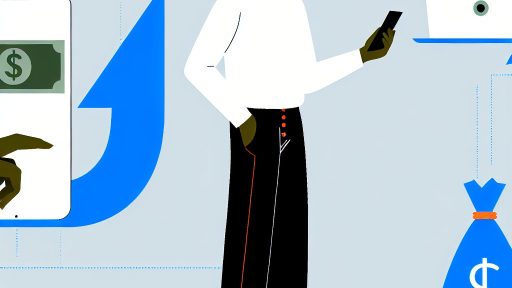Understanding the Importance of Emergency Funds in the Nigerian Economic Context
Economic Uncertainty and Financial Stability
The Nigerian economy experiences frequent fluctuations that affect many households.
Maintaining an emergency fund enhances individual financial stability.
Unexpected events like job loss or health emergencies can disrupt income streams.
An emergency fund provides a financial safety net during such crises.
Without savings, families may resort to high-interest loans or debts.
Emergency funds reduce reliance on costly borrowing options in Nigeria.
Inflation and Cost of Living Challenges
Nigeria faces persistent inflation that erodes purchasing power rapidly.
Having an emergency fund helps to manage sudden price increases effectively.
Household expenses can rise unexpectedly due to fuel or food inflation.
Emergency savings allow people to maintain their lifestyle despite economic pressure.
Individuals like Chukwuma Eze from Lagos emphasize saving to combat inflation.
His emergency fund covered essential expenses during recent price surges.
Access to Financial Services and Income Volatility
Many Nigerians work in informal sectors with irregular incomes.
Their monthly earnings can be unpredictable or inconsistent.
Emergency funds smooth out the irregular cash flow for such workers.
Your Personalized Financial Plan
Get expert financial advice tailored exclusively to your goals. Receive a custom roadmap in just 1-3 business days.
Get StartedAccess to formal credit is often limited and expensive.
Deposit accounts at Fidelity Bank Nigeria have helped clients like Amaka Nwosu save regularly.
Effective saving habits reduce financial stress caused by income volatility.
Promoting Financial Discipline and Preparedness
Building an emergency fund encourages discipline in budgeting and spending.
Individuals become more aware of their financial goals and limits.
It fosters a habit of prioritizing savings despite daily expenses.
Successful entrepreneurs such as Ifeanyi Okafor attribute their resilience to emergency savings.
His fund supported business continuity during the recession in Abuja.
Preparedness through savings strengthens economic resilience at a personal level.
Social and Economic Benefits of Emergency Funds
Emergency funds help reduce poverty by preventing financial shocks from causing destitution.
Society benefits when fewer people fall into debt or economic hardship.
Stable households contribute more positively to local economies.
Corporate leaders like Nkechi Arinze encourage employee savings programs in their companies.
Such initiatives enhance overall community welfare and economic growth.
Unlock a Debt-Free Future with Our Unique Strategies
Imagine a life unburdened by debt—a reality we help you visualize and achieve. We offer personalized strategies tailored to your unique situation, guiding you step-by-step toward financial freedom.
Start TodayEmergency funds play a vital role in sustainable economic development in Nigeria.
Assessing Unique Financial Challenges Faced by Nigerians
Inflation and Currency Fluctuations
Nigeria experiences high inflation rates that directly affect daily expenses.
Consequently, the purchasing power of the Naira decreases rapidly over time.
Moreover, currency fluctuations increase the cost of imported goods and services.
These economic factors create an unstable environment requiring financial preparedness.
Irregular Income Patterns
Many Nigerians work in informal sectors with inconsistent income streams.
For example, traders and artisans often earn daily or weekly, not monthly.
This irregularity makes budgeting and saving a significant challenge.
Therefore, emergency funds serve as vital financial buffers for these workers.
Medical Emergencies and Healthcare Costs
Healthcare expenses in Nigeria can escalate quickly without insurance coverage.
Patients like Amina Yusuf often face sudden hospital bills that strain finances.
Since medical emergencies are unpredictable, immediate funds become essential.
Thus, building savings ensures access to quality care without delay.
Economic Instability and Job Insecurity
Frequent economic shocks lead to widespread job losses across various industries.
Unlock Untapped Nigerian Wealth with Our Expert Advice
Imagine accessing investment opportunities others overlook—stocks, bonds, real estate, small businesses tailored to you. We offer personalized advice you won't find elsewhere, guiding you to financial success.
Unlock WealthFor instance, Lagos-based companies sometimes conduct sudden layoffs during downturns.
Such instability heightens the risk of prolonged unemployment among workers.
Consequently, maintaining an emergency fund provides a critical safety net.
Unexpected Family Obligations
Many Nigerians encounter unexpected family expenses such as schooling or funerals.
For example, Chinedu Okafor had to cover urgent school fees for his children unexpectedly.
These obligations can arise abruptly, causing financial stress without savings.
Therefore, emergency funds help manage these sudden family-related costs smoothly.
The Impact of Infrastructure Challenges
Unreliable electricity and transportation often lead to additional daily expenses.
For instance, frequent power outages force residents to buy fuel for generators.
These expenses add unpredictability to already tight budgets for citizens.
Hence, emergency savings help Nigerians adapt to ongoing infrastructure issues.
The Role of Emergency Funds in Enhancing Financial Security
Given these unique challenges, emergency funds become indispensable for financial security.
Without immediate access to funds, families may fall into debt or poverty traps.
Building a dedicated savings buffer helps Nigerians handle shocks confidently.
Moreover, such preparedness promotes overall economic resilience and wellbeing.
Determining the Ideal Size of an Emergency Fund Based on Income and Expenses
Understanding Your Monthly Income
Begin by calculating your total monthly income from all sources.
This includes your salary, side business profits, and any passive income.
For example, Amaka Eze earns 135,000 Naira monthly from her marketing job.
Additionally, she receives 25,000 Naira from graphic design freelancing.
Adding these gives Amaka a total monthly income of 160,000 Naira.
Listing Your Monthly Expenses
Next, track your monthly expenses accurately and consistently.
Include rent, utilities, food, transportation, and personal care costs.
Furthermore, account for irregular payments like medical bills and school fees.
For instance, Tunde Bakare spends 45,000 Naira on rent each month.
He also pays 18,000 Naira monthly on food and groceries.
Finally, his other essential expenses add up to 20,000 Naira monthly.
Calculating the Emergency Fund Size
Experts recommend saving between three to six months of expenses.
This range provides a financial cushion during income disruptions.
For example, Ijeoma Uzo’s total monthly expenses are 55,000 Naira.
Accordingly, she should aim for an emergency fund worth 165,000 to 330,000 Naira.
However, consider your job stability when choosing your target fund size.
A more uncertain income calls for a larger emergency fund.
Adjusting Your Fund Size for Economic Conditions
The Nigerian economy experiences inflation and currency fluctuations regularly.
Therefore, periodically review and adjust your emergency fund target.
For instance, if prices rise by 10%, increase your fund amount accordingly.
Moreover, consider any upcoming major expenses or life changes as triggers.
Adapting your fund size keeps your financial security relevant.
Prioritizing Essential Expenses
Focus your emergency fund on covering essential expenses only.
This includes housing, food, transportation, healthcare, and utilities.
Non-essential expenses like entertainment and dining out should be excluded.
Doing so helps you set a realistic and achievable emergency fund goal.
For example, Chika Nnamani targets only his essential monthly expenses of 75,000 Naira.
Using Practical Steps to Build Your Fund
Start saving a portion of your income regularly toward your fund.
For instance, Ifeanyi Okoro saves 25% of his monthly salary every month.
He keeps the fund in a liquid savings account for easy access.
Consistency and discipline ensure your emergency fund grows steadily over time.
Learn More: The Impact of Lifestyle Inflation on Your Savings
Effective Strategies for Building an Emergency Fund in a Volatile Economy
Setting Clear Financial Goals
Begin by defining the purpose of your emergency fund.
Establish specific savings targets based on your monthly expenses.
Furthermore, consider potential economic shocks that may require quick access to cash.
Clear goals keep you disciplined and focused on consistent saving.
Creating a Realistic Budget
Analyze your income and track all your monthly expenses carefully.
Identify non-essential spending that you can reduce or eliminate.
Subsequently, allocate a fixed portion of your income toward your emergency fund.
Using budgeting apps like PayTale or Uzeebo can simplify this process.
Automating Your Savings
Set up automatic transfers to your emergency fund from your salary account.
This ensures you save consistently without relying on memory or willpower.
Many Nigerian banks like Zenith Bank and GTBank offer automated savings plans.
Automation helps build your fund steadily despite economic uncertainties.
Diversifying Savings Vehicles
Keep your emergency fund liquid by using accessible savings accounts.
Additionally, consider a mix of FD accounts and low-risk investments.
For example, Sterling Wealth Management provides flexible, low-risk instruments.
This diversification protects your fund against inflation and currency fluctuations.
Adjusting Contributions During Economic Changes
Review your savings rate regularly in response to economic shifts.
If inflation spikes, try increasing your monthly savings, even slightly.
However, during tight cash flow periods, maintain at least a minimal contribution.
This adaptive approach helps sustain your fund growth through volatility.
Building Financial Discipline and Avoiding Withdrawals
Treat your emergency fund as untouchable except for real emergencies.
Resisting impulse withdrawals keeps your safety net intact for difficult times.
Create alternative plans for minor expenses or lifestyle desires.
Ultimately, disciplined saving empowers you against unexpected financial shocks.
Seeking Expert Advice and Support
Consult financial advisors like Zenith Financial Services for personalized plans.
Professional guidance can optimize your saving strategy amid economic uncertainty.
Join financial literacy programs offered by institutions like Sterling Bank.
Learning from experts improves your confidence in managing your emergency fund.
You Might Also Like: Simple Ways to Save Money Without Compromising Comfort in Nigeria
Best Savings Instruments for Emergency Funds Available to Nigerians
Fixed Deposit Accounts
Fixed deposit accounts offer a safe way to grow emergency funds.
They provide higher interest rates compared to regular savings accounts.
Moreover, banks like Guaranty Trust Bank and Access Bank offer competitive rates.
You commit your money for a fixed tenure, usually between one month and one year.
Because of this, it encourages disciplined saving for emergencies.
However, early withdrawal might attract penalties, so consider your liquidity needs carefully.
Savings Accounts with High Interest
High-interest savings accounts are accessible for most Nigerians.
FBNQuest and FCMB Bank provide attractive rates on such accounts.
These accounts offer easy access to funds in case of emergencies.
Furthermore, they allow you to deposit and withdraw funds without restrictions.
They suit those who prefer liquidity without locking money away.
Besides, mobile banking platforms enhance convenience for managing these accounts.
Money Market Funds
Money market funds present an alternative for emergency fund investment.
Nigerians can invest through asset management firms like Stanbic IBTC Asset Management.
These funds typically offer better returns than savings accounts.
At the same time, they maintain relatively low risk by investing in short-term government securities.
Additionally, money market funds offer good liquidity and allow quick access when needed.
Investors should confirm redemption periods, as they may vary by fund.
Treasury Bills and Government Bonds
Treasury bills provide a secure savings option backed by the Nigerian government.
They have short tenors, usually three to twelve months, ideal for emergency funds.
The Debt Management Office offers these instruments via primary auctions and secondary markets.
Government bonds with longer tenors also exist but suit less immediate cash needs.
Investing in treasury bills minimizes credit risk and ensures reliable returns.
However, consider transaction costs and access before allocating emergency money here.
Digital Savings Platforms
Digital savings platforms have grown rapidly across Nigeria.
Platforms like Cowrywise, PiggyVest, and Riby cater to flexible saving habits.
They offer user-friendly interfaces and automatic savings plans.
Additionally, these platforms provide competitive interest rates and investment options.
Users can quickly save and withdraw, maintaining emergency fund accessibility.
These options are ideal for tech-savvy Nigerians seeking convenient saving solutions.
Considerations for Selecting the Right Savings Instrument
When selecting a savings instrument, prioritize liquidity and safety.
Emergency funds must be easily accessible during unforeseen financial challenges.
Also, compare interest rates and fees across different options.
Consider combining instruments for balance between growth and availability.
For example, keep immediate funds in high-interest savings and excess in fixed deposits.
Consult financial advisors like Emeka Nwosu or firms such as Sterling Financial Advisory for guidance.
Ultimately, consistent saving behavior matters more than the complexity of the instrument.
Discover More: The Role of Savings in Financial Stability for Nigerians
How to Prioritize Emergency Funds Alongside Other Financial Goals
Recognizing the Importance of Emergency Funds
An emergency fund provides a financial safety net during unexpected events.
Nigeria’s fluctuating economy makes having a cushion crucial for stability.
Therefore, emergency savings should be a top priority for every individual.
Without this fund, setbacks can quickly escalate into larger financial problems.
Emergency funds also reduce the reliance on high-interest loans or borrowing from friends.
Balancing Emergency Funds with Other Financial Objectives
First, list all your financial goals clearly, including savings, investments, and debt repayment.
Next, analyze which goals require urgent attention and considerable funding.
Goals like buying a car or investing are important, but emergencies are unpredictable.
Hence, allocate a portion of your income specifically to build your emergency fund.
This approach ensures steady progress for both your emergency and long-term goals.
Creating a Budget that Supports Multiple Goals
Start by tracking your monthly income and expenses meticulously.
Then, categorize spending to identify where you can cut back and save more.
Consider prioritizing essentials such as food, housing, and transportation first.
Afterward, designate surplus funds towards your emergency savings before other goals.
Regularly review and adjust your budget as income or expenses change.
Setting Realistic Targets for Emergency Savings
Aim to save at least three to six months’ worth of living expenses.
However, start with small, achievable amounts if this seems overwhelming.
For example, save 10,000 to 20,000 NGN monthly to build momentum.
Gradually increase contributions as your financial situation improves.
Remember, consistent progress matters more than perfection or speed.
Leveraging Financial Tools and Support Systems
Use mobile banking apps like Kuda or GTBank to automate savings transfers.
Furthermore, join community savings groups or cooperatives for motivation.
These groups often encourage discipline and provide emergency support when needed.
Additionally, consult financial advisors such as Tolu Financial Services for personalized plans.
Such guidance helps balance all your financial goals with expert insight.
Uncover the Details: The Psychology of Saving: Why Nigerians Struggle and How to Overcome It

Managing and Accessing Your Emergency Fund During Unforeseen Events
Effective Strategies for Managing Your Emergency Fund
Safeguarding your emergency fund requires a clear plan and disciplined saving habits.
Therefore, separate your emergency savings from regular spending accounts immediately.
For instance, many Nigerians prefer using dedicated savings accounts like those offered by Sterling Bank and GTBank.
Additionally, consider using fixed deposit accounts to earn interest while protecting your funds.
More importantly, avoid tapping into your emergency fund for non-essential expenses.
Otherwise, you risk depleting critical resources when real emergencies occur.
Consequently, set a target amount that covers at least three to six months of your essential expenses.
Moreover, review your fund regularly to adjust for inflation and changes in living costs.
Practical Ways to Access Your Emergency Fund Quickly
Quick access to funds can make a significant difference during unforeseen events.
Therefore, choose banking services that provide instant ATM withdrawals and online transfers.
For example, Access Bank and Fidelity Bank offer seamless digital banking platforms nationwide.
Alternatively, mobile money wallets like Paga also provide fast access to emergency cash.
Still, ensure you understand withdrawal limits and fees to avoid surprises during a crisis.
Furthermore, keep your account information updated to facilitate smooth transactions in urgent situations.
Common Unforeseen Events That Require Emergency Funds
Unexpected medical expenses rank high among emergencies threatening financial stability.
Similarly, sudden job loss demands immediate access to savings to cover daily costs.
Natural disasters such as floods can cause urgent property repairs and replacements.
Moreover, urgent family needs, like supporting a relative in crisis, may require quick fund withdrawal.
Thus, a well-managed emergency fund helps you navigate these challenges with less stress.
Tips for Maintaining Your Emergency Fund’s Integrity
Track all withdrawals carefully to prevent unintended erosion of your emergency savings.
Regularly replenish funds after usage to maintain your financial safety net.
Consider automated transfers each payday to keep growing your emergency savings consistently.
Educate family members about the fund’s purpose to prevent unnecessary dipping into it.
Finally, consult with financial advisors like Kemi Financial Services when planning complex emergencies.
Common Mistakes Nigerians Make When Setting Up Emergency Funds and How to Avoid Them
Setting Unrealistic Savings Goals
Many Nigerians set emergency fund targets without considering their actual expenses.
Consequently, they save too little or too much for emergencies.
For example, Samuel from Lagos aimed to save only ₦50,000, which was insufficient.
Instead, analyze monthly essential expenses carefully before deciding your emergency fund size.
This approach ensures your fund covers at least three to six months of major costs.
Mixing Emergency Funds with Other Savings
Some individuals like Amina mix emergency savings with retirement or investment funds.
This habit reduces accessibility during genuine emergencies.
Therefore, keep your emergency money separate from other financial goals.
Opening a dedicated savings account with Zenith Bank or Access Bank can help.
Segregation improves discipline and prevents premature withdrawals.
Ignoring Inflation and Economic Changes
The Nigerian economy experiences frequent inflation and currency fluctuations.
Yet, many savers do not adjust their emergency fund targets accordingly.
For instance, Ifeanyi’s fixed emergency fund lost value due to rising living costs.
Regularly review and increase your fund to maintain purchasing power.
This step protects you from unforeseen price hikes and currency depreciation.
Using Inaccessible or Illiquid Financial Products
People sometimes invest their emergency savings in fixed-term bonds or pension plans.
These products lack liquidity when quick cash is needed.
Chinedu placed his emergency fund in a two-year fixed deposit and struggled to access it.
Instead, choose savings accounts or money market funds with immediate withdrawal options.
Easy access ensures your emergency fund serves its purpose effectively.
Delayed Starting or Inconsistent Contributions
Many Nigerians delay building emergency funds due to competing financial priorities.
Moreover, irregular deposits can stall progress markedly.
Nneka started saving late and missed accumulating sufficient reserves in time.
Begin early and contribute consistently, even small amounts monthly, to grow your fund.
Automating transfers can help maintain steady savings momentum.
Lack of Clear Emergency Fund Purpose
Without a defined reason, some people mistakenly dip into their emergency funds for non-urgent expenses.
For instance, Amaka used her emergency money for holiday shopping.
Define what qualifies as an emergency to avoid unnecessary withdrawals.
Examples include medical bills, sudden job loss, or urgent home repairs.
This discipline preserves your fund’s availability during real crises.
Overlooking Currency Diversification
Given Nigeria’s foreign exchange fluctuations, keeping funds solely in Naira can be risky.
Businesswoman Funke maintains part of her emergency funds in stable foreign currencies.
Consider diversifying by holding some savings in US dollars or euros if accessible.
This tactic reduces risks tied to Naira depreciation during economic shocks.
However, stay mindful of foreign exchange regulations by the Central Bank of Nigeria.
Role of Financial Discipline and Budgeting in Maintaining a Robust Emergency Fund
Importance of Financial Discipline
Financial discipline drives consistent saving habits.
It helps individuals resist impulsive spending in uncertain times.
Moreover, discipline ensures funds remain allocated for emergencies only.
For example, Chinedu Eze sets aside savings before other expenses monthly.
This commitment secures his emergency fund against economic fluctuations.
Therefore, financial discipline acts as the foundation of a reliable safety net.
Effective Budgeting Practices
Budgeting provides a clear overview of income and expenses.
It allows individuals to identify areas for cost-cutting and increased savings.
Olufunke Adeyemi uses a zero-based budget to track every naira spent.
This method prevents unnecessary expenditures and maximizes emergency fund growth.
Furthermore, budgeting ensures emergency contributions are selected before discretionary spending.
Consequently, implementing a realistic budget fosters steady fund accumulation.
Strategies to Maintain Financial Discipline and Budgeting
- Create monthly financial goals focused on emergency savings.
- Use digital tools, like budgeting apps, to monitor progress accurately.
- Regularly review and adjust the budget to adapt to changing economic conditions.
- Engage family members in financial planning to reinforce discipline collectively.
- Set up automatic transfers to emergency savings accounts to avoid lapses.
By adopting these strategies, users like Amina Balogun achieve financial stability amid Nigeria’s economic challenges.
Adapting to Economic Realities in Nigeria
Nigeria’s fluctuating economy demands heightened financial caution.
Inflation and currency instability require more frequent budget adjustments.
Chukwuma Obi manages his emergency fund by revisiting his budget quarterly.
This approach helps him accommodate rising living costs efficiently.
Additionally, diversifying income sources strengthens the ability to save consistently.
Ultimately, tailored budgeting combined with discipline prepares individuals for unexpected hardships.
Adapting Emergency Fund Strategies to Nigeria’s Inflation and Currency Fluctuations
Understanding the Impact of Inflation on Emergency Funds
Nigeria experiences high inflation rates that reduce the purchasing power of savings.
Saving a fixed amount without adjustment may leave you underprepared.
Considering inflation protects your emergency fund’s real value over time.
It helps avoid sudden shortfalls during emergencies.
Regularly review and increase your emergency fund to match inflation trends.
Managing Currency Fluctuations in Emergency Fund Planning
The Nigerian Naira often fluctuates against major currencies like the US dollar.
Currency instability can affect the value of imported goods and services expenses.
Emergency funds held solely in Naira may lose value in certain situations.
Consider diversifying some savings into stable foreign currencies or assets.
Holding part of your fund in US dollars can provide a hedge against depreciation.
Practical Strategies for Building Resilient Emergency Funds
First, estimate your essential monthly expenses with inflation factored in.
Set a target that covers at least six months of those inflation-adjusted expenses.
Save consistently by automating contributions to your emergency fund.
Consider using inflation-linked savings products offered by trusted Nigerian banks.
Explore low-risk foreign currency accounts for partial diversification.
Always monitor Nigeria’s economic indicators and adjust your fund accordingly.
Choosing Reliable Financial Institutions
Pick banks with a strong track record of stability and customer service.
For example, Fidelity Bank and Access Bank offer inflation-adjusted savings options.
Some fintech platforms provide access to foreign currency savings and investments.
Using multiple institutions can reduce risk caused by fluctuating financial environments.
Ensure chosen institutions have proper insurance and regulatory approvals.
Additional Resources
International Standard Industrial Classification of All Economic …




